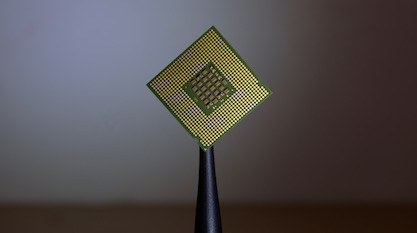 Faith & Science
Faith & Science
 Neuroscience & Mind
Neuroscience & Mind
Marks on the AI Church: “The Singularity Is Far”


In an excellent post at Mind Matters, Robert Marks of Discovery Institute’s Bradley Center observes the way that new religions, including one centered on Artificial Intelligence, follow a stereotyped pattern, with promises of immortality, holy books (Ray Kurzweil’s The Singularity Is Near), a prophesied World to Come, apologetic arguments, and more. The AI Church has all these things. It has one problem, though, which is that its promises run up against what we already know about its technological savior, which is software.
To accomplish the things that the Church promises — like being able to upload your nonalgorithmic personality to immortal existence, in the coming Singularity — computers would need to be something other than they are known to be: pure algorithm.
Some have proposed that the nonalgorithmic abilities of humans might be achieved by certain quantum effects that are themselves not algorithmic.5 Computers6 do not have this capability. They can only achieve algorithmic tasks. If your ideology is constrained to narrow naturalism, the nonalgorithmic effects in quantum mechanics look to be the only dim star of hope in a big black sky.
Judging by their writings, most of the worshippers at the AI Church are unaware of the speculative nature of their quantum conjecture. For example, they believe that Kurzweil’s prophecies will be fulfilled by bigger and faster versions of today’s algorithmic computers. But nonalgorithmic computing remains largely unexamined and has a long way to go. No one today seems interested in pursuing its reduction to practice. The Singularity Is Far.
So the case for faith in the AI Church is hanging on a thin thread of speculation whose tensile strength remains unexamined.
Great reflections, and witty as you’d expect from Dr. Marks. Read the rest over at Mind Matters.
Photo credit: Brian Kostiuk – @BriKost via Unsplash.
